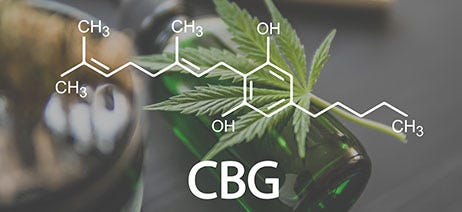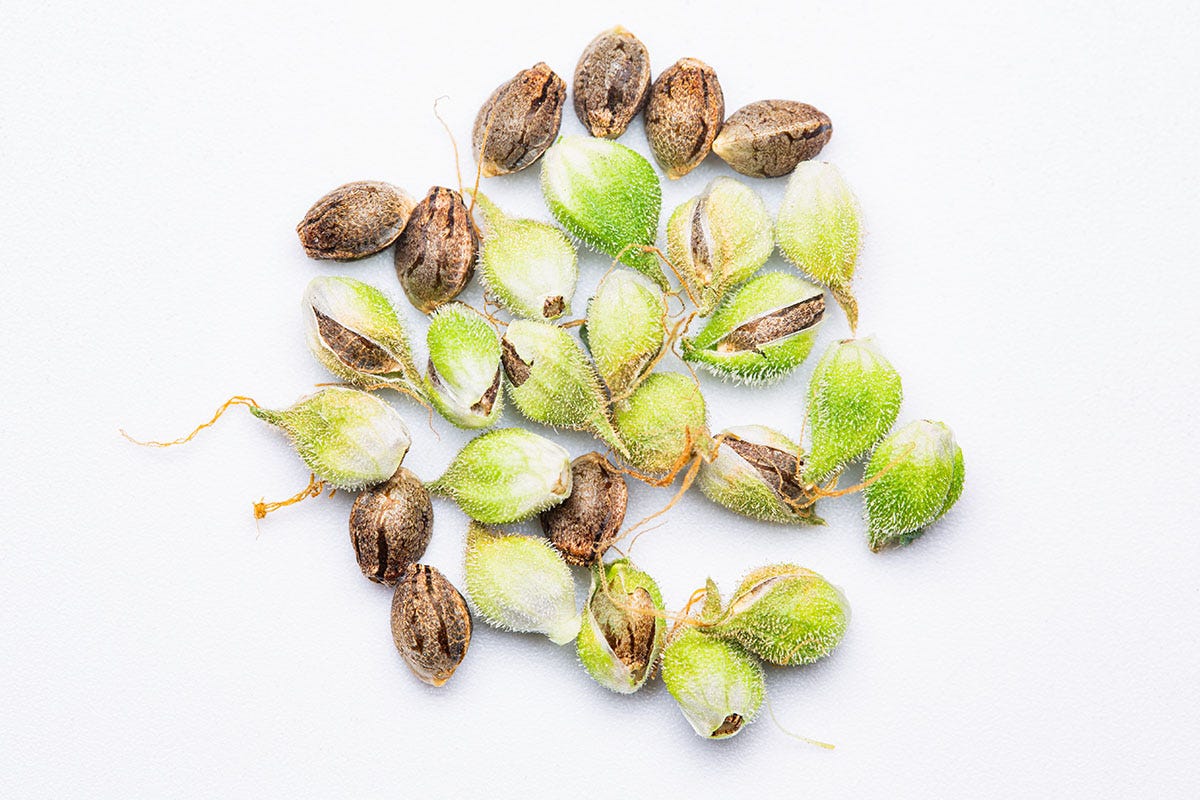
What is CBG & How is it Different From CBD?
Cannabigerol, or CBG, is a cannabinoid found in the cannabis plant. It is often called the "mother of all cannabinoids" because it is the precursor to other well-known cannabinoids like THC and CBD. While CBD and THC have gained significant attention, CBG is now starting to make waves.
In this guide, we will explore:
- What is CBG?
- What are the Potential Benefits of CBG?
- CBG vs CBD: What’s the Difference?
- CBG vs THC: What’s the Difference?
- What CBG Products are Available?
- FAQs About CBG
What is CBG?
CBG, or cannabigerol, is a non-intoxicating cannabinoid, meaning it does not produce the psychoactive effects typically associated with THC. It is found in low concentrations in most cannabis strains because it converts into other cannabinoids as the plant grows. This means that CBG has to be cultivated from young plants or strains specifically bred for their cannabigerol.1


CBG is derived from the same source as other cannabinoids—the cannabis plant. It starts as cannabigerolic acid (CBGA), which is converted into CBG through various processes. As the cannabis plant matures, CBG converts into other cannabinoids, including CBD and THC. Since CBG is an early-stage cannabinoid, it is usually present in lower concentrations compared to CBD and THC.2
What are the Potential Benefits of CBG?
While research on CBG is still in its early stages, preliminary studies suggest that it may have several potential benefits.3 CBG has been found to interact with the body's endocannabinoid system, which plays a crucial role in regulating various physiological processes.
Some potential benefits of CBG include:1
Anti-inflammatory properties: CBG has shown promise in reducing inflammation in preclinical studies, which could be beneficial for conditions like inflammatory bowel disease, arthritis, and neurodegenerative disorders.
Neuroprotective effects: CBG has demonstrated neuroprotective properties in animal studies, indicating its potential in the treatment of neurodegenerative diseases such as Parkinson's and Alzheimer's.
Pain relief: CBG may act as an analgesic and help alleviate pain. It could be instrumental in managing chronic pain conditions.
Anti-cancer properties: Preliminary research suggests that CBG may inhibit the growth of cancer cells, making it a subject of interest in the field of oncology.
It’s important to understand that while we are hopeful we’ll be able to harness any therapeutic benefits CBG has, they are as yet unproven, so you should consume CBG for the effects it has on your body and not its potential.
CBG vs CBD: What’s the Difference?
CBG and CBD are both non-intoxicating cannabinoids that are being studied for their potential as therapeutic treatments for various conditions, but they differ in their molecular structures. CBG and CBD may also have slightly different effects. For instance, some cannabis enthusiasts suggest that while CBD is an appetite suppressant, CBG is an appetite stimulant.1 Ultimately, only you can decide if you feel any difference between these two cannabinoids when you consume them.
CBG vs THC: What’s the Difference?
The biggest difference between CBG and THC is intoxication. Unlike THC, CBG does not produce psychoactive effects or cause the feeling of being "high." Additionally, THC cannot exist without CBG. CBG is considered a precursor to the primary cannabinoids THC and CBD. This means that for THC to exist, CBG has to be there first before being converted into THC and other cannabinoids.4
What CBG Products Are Available?
As CBG gains recognition, an increasing number of products are hitting the market, including CBG oil, tinctures, and even gummies. You can also purchase CBG as part of a full-spectrum product. This means that all the cannabinoids that were in the product remain in the product after processing.
We strongly recommend purchasing your CBG from a state-licensed dispensary. That’s the only way you can be sure you’re getting a safe, high-quality product.


FAQs About CBG
Questions about CBG? We’ve got answers:
What is CBG good for?
While research is ongoing, CBG seems to show potential in treating various conditions, including inflammation, pain, neurodegenerative diseases, and anxiety.5 However, it is essential to consult with a healthcare professional before using CBG or any cannabinoid for specific medical conditions.
Does CBG get you “high”?
No, CBG does not produce psychoactive effects or induce a "high" like THC.
Is CBG legal?
The legal status of CBG varies from state to state. In some states, CBG derived from industrial hemp is legal, as long as it contains less than 0.3% THC. In states where marijuana is legal, you can likely find CBG products in licensed dispensaries.3 We always recommend going through dispensaries to ensure you’re getting a safe, tested product.
What does CBG do?
CBG converts into major cannabinoids like THC and CBD. It can also contribute to the entourage effect in your body.


More About Cannabigerol
As research continues, scientists are uncovering more about the potential benefits of CBG and its interactions with the body. Until then, the best person to decide how CBG benefits you is you. Head down to your local dispensary and ask your budtender what CBG products they have in stock.
Sources:
1. “What Is CBG? Benefits, Risks And More,” Forbes, https://www.forbes.com/health/cbd/cannabigerol-cbg/
2. “What is CBG (cannabigerol) & what does this cannabinoid do?,” Leafly, July 31, 2025, https://www.leafly.com/news/cannabis-101/what-is-cbg-cannabinoid
3. “What is the difference between CBD and CBG?,” MedicalNewsToday, October 20, 2023, https://www.medicalnewstoday.com/articles/cgb-vs-cbd
4. “Is CBG the Next CBD? Here's What an MD Wants You to Know,” Real Simple, July 14, 2025, https://www.realsimple.com/food-recipes/recipe-collections-favorites/popular-ingredients/cbd-versus-cbg
5. “What is CBG good for? A cannabis compound with big potential,” GreenState, January 2, 2025, https://www.greenstate.com/curated/what-is-cbg-good-for/


